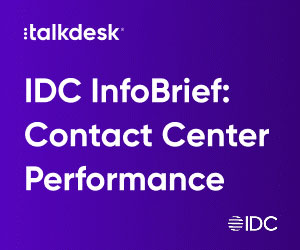Heather Foley explains how you can get your team to embrace Performance Management rather than fear it.
Performance Management. It’s one of those topics. Even the term itself sounds official, corporate, cold. You’d be forgiven for getting, at the very least, mildly worked up about it. Your job as a manager, however, is to embrace it. Furthermore, you need to lead your team on this journey of the unknown, conquering anxiety as you go.
Here are five key steps to help you fire up your team for Performance Management:
1. Preparing the way
Firstly, make the process clear. Performance Management may be a voyage of discovery for the people in your team, but you can quite easily arm them with the map.
An initial meeting in which the process is laid out is a must. If you employ an outside agency to carry out your Performance Management, they will happily prepare the ground with your team. Essentially, this involves giving an overview of the process, in addition to outlining the key steps to be taken.
Giving your team an understanding of what processes are used and how they will be carried out can go a long way to reducing anxiety and can encourage the team to face Performance Management positively.
2. What’s in it for us?
Objectives should also be laid down from the beginning. The aims of Performance Management are usually to monitor progress and identify need. However, as a manager, you can promote the benefits to your team in such a way that is particular to your business and department.
While the process is, undoubtedly, to flag up concerns, it’s also very much about identifying strengths. Not only is this important to individuals, but it’s also essential information about a team.

Heather Foley
One result of the Performance Management process is that, as needs are identified, so too are areas for development. Target setting is crucial, and your team members should be able to see that any areas for development are matched with a date for a training or re-training programme.
People often worry that any weaknesses will be revealed, and it’s your task as manager to assure them that a key objective of the process is to help them develop and improve in their careers. Furthermore, when you, as their manager, are appraised, any development needs that are identified in you will help you to become a better manager and, ultimately, the team will benefit too.
3. The 360 approach
As part of, or even instead of, Performance Management, the 360-degree feedback system can work extremely well. As its name suggests, the 360 approach is comprehensive. One aspect of this is the opportunity for self-evaluation. This will give your team a genuine sense of ownership of the process, as individuals will have the chance to comment on their own performance.
4. Take it easy
One way of making Performance Management easy for all concerned is to hand over its implementation to an outside organisation.
A professional company will be able to not only run the process for you, but also co-ordinate the programme in a streamlined, consistent way. Also, software is available which processes feedback scores and creates reports for each team member. Outside agencies may well have teams of consultants, too, who can analyse the results of employee surveys.
5. Stand and deliver!
When it’s all over, it’s easy to sit back and think that your job is done. Far from it! You now need to show your team that the results of Performance Management are vitally important.
If areas for development have been identified, then it falls to you, as manager, to help your team members plan the next steps in their career development. Help them seek out further training, set new targets and book a date for a follow-up meeting. Your people need to see that Performance Management can deliver on its promises.
Introducing Performance Management needn’t be a stressful or daunting time. Rather, it is a chance for your team to pause, re-evaluate, and set new goals. You could all come out of the process more focused, more positive and, with any luck, fired up for the next one.
Heather Foley is a consultant at ETS plc, a UK-based HR consultancy.
Author: Megan Jones
Published On: 12th Mar 2014 - Last modified: 17th Sep 2019
Read more about - Call Centre Management, Career, Performance Management

















Excellent points made and I can confirm the huge value of getting results back to staff in real-time.
Automated post-call surveys are very often used to collect staff-based feedback and by delivering the scores and verbatim comments to the staff member immediately after the call, both good and bad feedback help complete the 360 degree loop of original call and subsequent result.
Like all programs that require work for no immediate result, getting people enthusiastic about performance management is usually a tough ask. My suggestion is to start by linking points 1 and 5. People will get involved with performance management with enthusiasm once the process and benefits are clear. Without that it’s just another administrative task forced on them by HR.